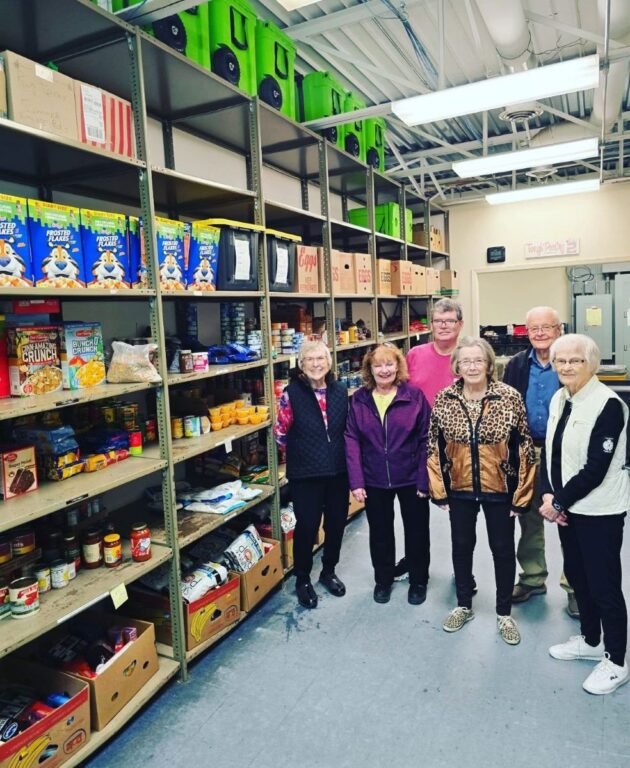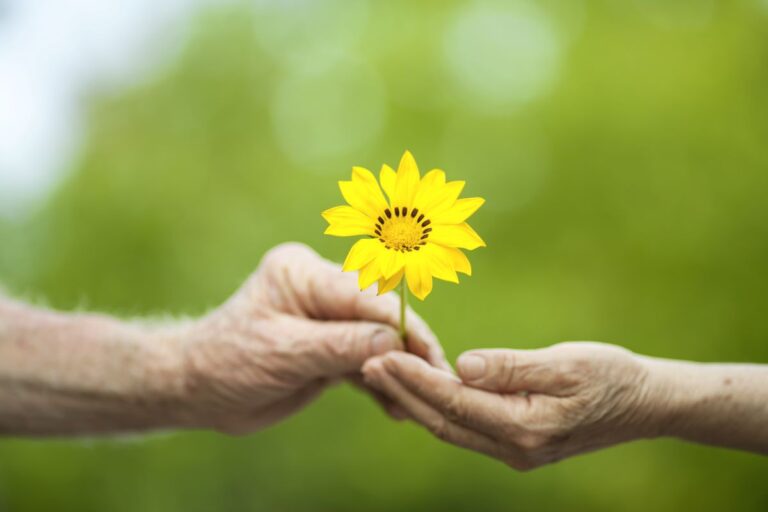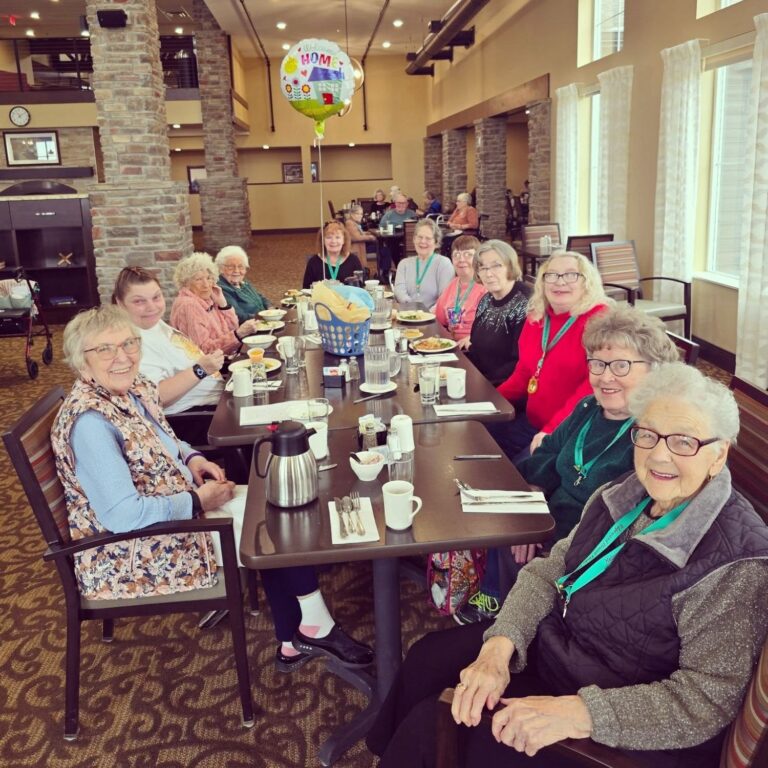Are You Ready for an Emergency?
At Edgewood, we have emergency preparedness plans in place to keep residents safe. But if you live in a private home, chances are you don’t have a backup plan—until disaster strikes. And by then, it’s too late, so we wanted to share our helpful tips with seniors, no matter where they call home!
Explore Senior Living Communities Near Me
Mother Nature has kept the staff on their toes at Edgewood’s memory care communities in Nebraska this past year! After a torrential downpour, our Nebraska Regional Vice President, Amy Brinley, spotted something unexpected in a flooded parking lot—a fish. A real, actual fish. And no, there’s no lake or river close by. We’re still trying to figure that one out.
But that wasn’t the only weather surprise. Four of our Nebraska communities—Omaha, Fremont, Grand Island, and Columbus—lost power in the past month due to severe winter storms. Some ran on backup generators for several hours while electricians worked tirelessly to restore power.
Our team always goes the extra mile (sometimes literally). One dedicated staff member at an Edgewood community in the Dakotas even took a snowmobile to work when dangerous road conditions shut everything down!
We’re beyond grateful for our incredible teams, who make sure residents are safe and comfortable, no matter what the weather throws their way. But these wild weather moments raise an important question for other seniors living in private settings: Are you prepared if disaster strikes?
Why Plan for the Unexpected?
Emergencies don’t wait for a convenient time. Natural disasters happen year-round, whether it’s flooding, wildfires, blizzards, or power outages. And with summer right around the corner, now is the perfect time to get your emergency plan in place.
Plus, the sooner you prep, the sooner you can kick back and enjoy those lake days and backyard BBQs—don’t forget an emergency kit for the cabin, too!
What to Keep in Your Emergency Kit
No need to go full doomsday prepper, but having the basics on hand can make a huge difference. If disaster strikes, there’s no telling how long it’ll take for power to return or for stores to restock essentials.
(Your list may vary based on your needs—if you rely on oxygen or skilled healthcare, consider a backup care plan, like a short-term stay at a senior community.)
- Battery-powered essentials: Flashlights, lanterns, radios, and extra batteries
- Cash & credit cards (ATMs might be down)
- Cleaning supplies & garbage bags
- Dust masks (FEMA recommends these for air quality concerns)
- Food & water for humans and pets, too—(pack items that have a long shelf-life like granola bars, canned goods, and other easy items + a can opener if needed)
- First aid kit
- Important documents (stored in a waterproof container)
- Local maps (in case GPS goes out)
- Medications (at least a week’s supply)
- Toiletries (perfect time to use those hotel mini shampoos!)
- Whistle (for signaling for help)
- Wrench or pliers (non-sparking, for turning off utilities)
Other Important Items
- Candles & matches (stored in a waterproof container)
- Extra clothes & footwear
- Fire extinguisher
- Notebook & pen (for notes, lists, or doodling while you wait out the storm)
- Pet supplies (food, meds, extra leash)
- Sleeping bags or blankets
- Basic tools (scissors, screwdriver, duct tape, etc.)
- Toilet paper & wet wipes
Where to Store Your Emergency Kit
Anyone who’s seen The Wizard of Oz knows that tornadoes have a way of misplacing things. Store your emergency kit in a spot that’s safe and easy to grab, like:
-
A hall closet near an exit
-
Your garage (if accessible)
-
Your vehicle (for emergency evacuations)
-
A basement or storm shelter (if tornadoes or severe storms are common)
Whatever you do, make sure everyone in your household knows where the kit is—and check it occasionally to replace expired items. Oh, and remind the family that the emergency granola bars are for actual emergencies, not snack attacks.
Other Emergency Prep Tips
-
Have a family plan. Choose a meeting spot outside your home in case of evacuation.
-
Stay informed. Sign up for local weather alerts.
-
Stay calm. Being prepared makes handling an emergency way less stressful.
Short-Term Stays at Edgewood
Need a Short-Term Place to Call Home? Edgewood Can Help!
For seniors who don’t want to ride out an emergency alone, Edgewood offers short-term stays for planned or emergency situations. Whether for a few weeks, a month, or the whole season, we provide a safe, comfortable environment—with backup plans already in place, so you don’t have to worry!
For more information, please email us at info@edgewoodhealthcare.com or contact your local Edgewood community today.





